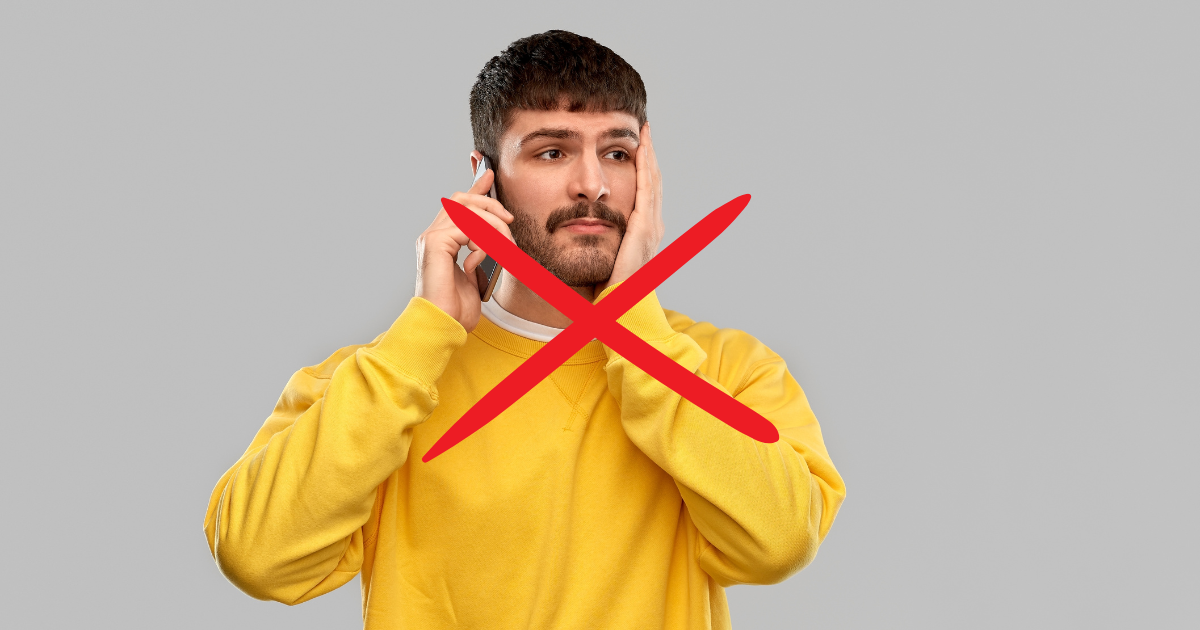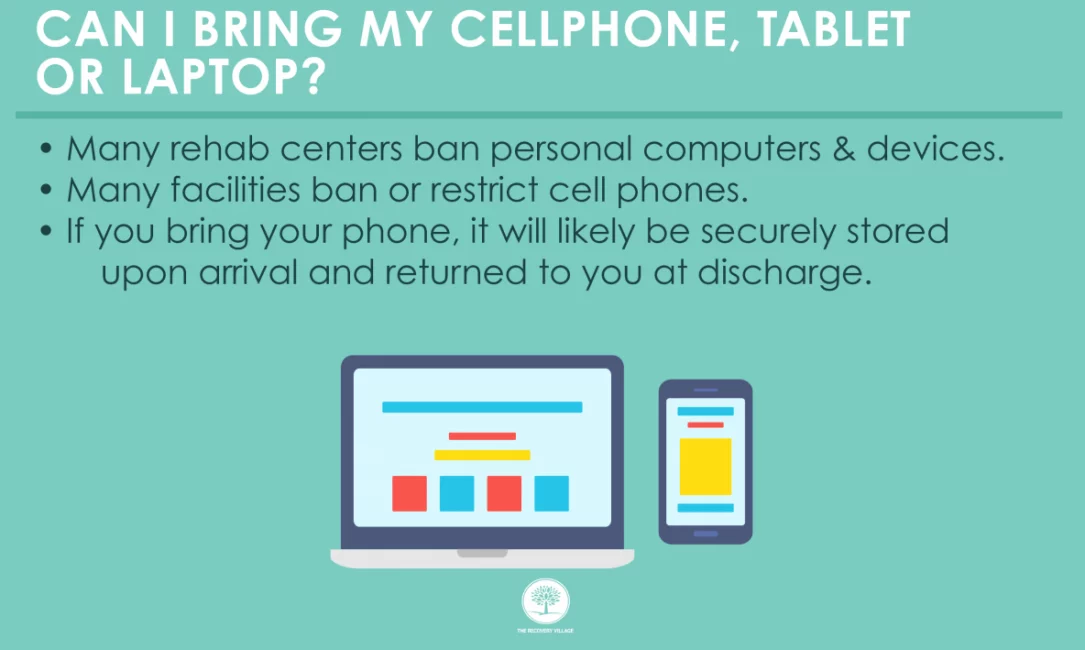Yes, whether or not you’re allowed to have a phone in rehab depends on the specific rules and guidelines of the facility you’re attending. Some rehab centers may allow limited phone use, while others may restrict or prohibit it entirely.
It’s important to check with the rehab center beforehand to understand their policies regarding phone usage. By knowing the rules in advance, you can better prepare for your time in rehab and ensure that you are following the guidelines set by the facility.
We’ll explore the reasons behind phone restrictions in rehab, the potential benefits of limited phone use, and alternative communication methods that may be available to individuals undergoing treatment. Ultimately, understanding the phone policies in rehab can contribute to a more successful and productive recovery process.
The Debate over Phones In Rehab
The use of phones in rehab facilities has long been a topic of great discussion and debate. Some argue that allowing phones can have a positive impact on the recovery process, while others express concerns about privacy and potential distractions. In this article, we will delve into the different perspectives surrounding this issue.
Impact on Recovery Process
Allowing patients to have access to their phones during rehab can potentially have a positive impact on their recovery process. With the ability to stay connected to their loved ones and support systems, patients may feel a sense of comfort and motivation. This connection can serve as a reminder of the reasons they chose to seek treatment in the first place, providing encouragement during difficult moments.
Additionally, some rehab facilities offer apps or digital tools that can aid in the recovery journey. These apps may provide mindfulness exercises, meditation guides, and educational resources that can be accessed through the patients’ phones. Such tools can supplement the treatment program and aid in maintaining sobriety even after leaving rehab.
Privacy Concerns
On the other hand, privacy concerns are often raised when considering the use of phones in rehab. Rehab facilities aim to create a safe and confidential environment for patients to focus on their recovery. There is a risk that phones can be used to access harmful or triggering content, engage in negative behaviors, or breach the privacy of other individuals within the facility.
Furthermore, the presence of phones can be a distraction for patients, diverting their attention away from therapy sessions, group activities, or self-reflection. It’s important for individuals to fully immerse themselves in the treatment program without the potential interruptions that phones can bring.

Credit: landmarkrecovery.com
Pros and Cons Of Allowing Phones
The use of phones in rehab facilities is a topic that often prompts discussion among individuals seeking treatment for addiction. While having access to phones can offer benefits, there are also drawbacks to consider in terms of maintaining focus on recovery. Let’s explore the pros and cons of allowing phones in rehab:
Potential Benefits
- Enhanced Communication: Staying connected with loved ones can provide emotional support.
- Access to Resources: Can access educational materials or apps for meditation and relaxation.
- Promotes Accountability: Encourages individuals to share their progress with their support network.
Drawbacks to Consider
- Distraction: Constant notifications can disrupt therapy sessions and group interactions.
- Access to Triggers: Phones can provide a gateway to negative influences or past behaviors.
- Isolation: Excessive phone use may lead to withdrawal from social interactions within the facility.
Also Read: How to Transfer Lg Phone to Iphone
Phone Policies In Different Rehab Facilities
Understanding the Variations in Rules and the Factors Influencing Policies of phone usage in rehab centers can help you navigate the guidelines effectively.
Variations In Rules
Rehab facilities may differ in their phone policies, ranging from complete prohibition to limited usage under supervision.
Factors Influencing Policies
Several factors impact phone policies, including the facility’s treatment approach, privacy concerns, and the level of care provided.
Table: Types Of Phone Policies
| Facility Type | Phone Policy |
|---|---|
| Residential Rehab | Restricted phone usage |
| Outpatient Programs | Allowed with limitations |
Phone regulations in rehab facilities are essential for maintaining a focus on recovery and ensuring a safe and supportive environment for individuals seeking treatment.
- Privacy concerns often dictate strict phone policies in rehab centers to protect patient confidentiality.
- Clinical programs may enforce restrictions on phone usage to promote immersion in therapy and activities.
- Personal devices might be allowed in some facilities based on individual treatment plans and progress in recovery.
Alternatives to Phone Access
Explore alternatives to phone access during rehab, as some programs restrict phone usage. Options include supervised calls, designated times for communication, and supportive technology for staying connected with loved ones. Embrace these alternatives to navigate through your rehab journey successfully.
Every rehab facility has its own rules and regulations regarding phone use during treatment. While some allow limited phone access, others have a strict no-phone policy. However, even if you’re not allowed to use your phone, there are still alternatives available to help you stay connected and engaged during your recovery journey.Therapeutic Activities
Engaging in therapeutic activities is an excellent way to fill the void left by restricted phone access. These activities not only keep you occupied but also provide you with a productive outlet for self-expression and personal growth. Here are some therapeutic options you can explore:- Art Therapy: Unleash your creativity through painting, drawing, or other art forms. This expressive medium can help you process emotions and gain insight into your recovery.
- Music Therapy: Allow the power of music to heal your mind and soul. Participating in music therapy sessions can unlock emotions, promote relaxation, and foster self-reflection.
- Group Therapy: Engage in group therapy sessions to connect with others who are going through similar struggles. These sessions provide a safe space to share experiences, receive support, and learn valuable coping skills.
- Yoga and Meditation: Explore the practices of yoga and meditation to find inner peace and clarity. These mindfulness techniques can help you manage stress, reduce cravings, and improve your overall well-being.
- Outdoor Activities: Take advantage of the healing power of nature by participating in outdoor activities. Going for walks, hikes, or engaging in team sports can boost your mood and provide a much-needed break from the treatment environment.
Communication Options
Although you may not have direct phone access, there are still various options available to stay connected with your loved ones and maintain a support system. Here are a few communication alternatives to consider:- Letters and Cards: Put pen to paper and rely on traditional mail services to send heartfelt messages to your friends and family. Receiving a letter can bring joy and reassurance during your time in rehab.
- Family Sessions: Many rehab centers offer family therapy sessions, where you can interact with your loved ones under the guidance of a professional therapist. These sessions provide a platform for open communication and help in rebuilding trust and understanding.
- Email or Online Messaging: Some facilities allow patients to access email or online messaging platforms under supervision. This restricted digital communication can help you stay connected with your support network while still adhering to the rules in place.
- Visitation Hours: Make the most of visitation hours to have face-to-face interactions with your loved ones. These visits can provide emotional support and reinforce your commitment to recovery.
Managing Phone Use In Rehab
Managing phone use in rehab is a critical aspect of the recovery process. While access to phones can provide a sense of connection, it’s important to establish boundaries and promote responsible use to ensure a conducive environment for rehabilitation.
Setting Boundaries
Setting boundaries around phone use in rehab is essential to create a structured and focused environment. Limiting phone access during specific times of the day allows individuals to prioritize therapy sessions, group activities, and reflection time without distractions.
Supporting Responsible Use
Supporting responsible phone use involves educating individuals about the impact of excessive screen time on their mental and emotional well-being. Encouraging mindfulness and self-regulation empowers participants to use their phones as tools for positive communication and personal growth rather than as distractions.

Credit: www.therecoveryvillage.com
Impact on Family and Friends
When a loved one enters rehab, it’s natural to wonder about the impact it will have on family and friends. Communication plays a crucial role during this time, and restrictions on phone use can add an extra layer of complexity. Understanding how this can affect both the individual in rehab and their support network is important.
Supporting Communication
Supporting communication with a loved one in rehab is essential for their emotional well-being. Limited access to their phone can hinder these efforts, leaving family and friends feeling disconnected and worried. It’s important for the rehab facility to provide alternative communication options, such as scheduled phone calls or supervised visits, to help maintain strong connections.
Understanding Restrictions
Understanding the restrictions placed on phone use in rehab can help family and friends manage their expectations. While it can be challenging to accept limited communication, it’s important to acknowledge that these measures are in place to support the individual’s recovery. By understanding and respecting these boundaries, loved ones can help create a supportive environment for the person in rehab.
Legal and Ethical Considerations
When entering a rehabilitation facility, it is important to understand the legal and ethical considerations surrounding the use of mobile phones. As a patient, you have rights that must be respected, and the facility must adhere to strict confidentiality protocols. In this article, we will explore the legal and ethical aspects of having a phone in rehab, including patient rights and confidentiality.
Patient Rights
Patient rights are an essential aspect of any healthcare treatment, and rehab is no exception. While each facility may have its own specific guidelines, patients generally have the right to maintain contact with their loved ones and to have access to information during their treatment. However, it is crucial to strike a balance between personal rights and the successful recovery of the patient.
In the context of mobile phone usage, rehab centers may impose restrictions on phone usage and access to ensure a focused and distraction-free environment. Limitations on phone use can help patients dedicate their full attention to the recovery process and avoid potential triggers or distractions that might hinder their progress. In some cases, rehab facilities might provide designated phone areas or daily time slots for patients to communicate with their loved ones.
Confidentiality
Confidentiality is of utmost importance in rehab centers, as it fosters an environment of trust and ensures the security of personal information. It is essential for patients to know that their privacy is respected and that their personal data will be protected.
When it comes to mobile phones, strict guidelines are typically implemented to safeguard confidentiality. Facilities often require patients to adhere to a no-phone policy to prevent the potential misuse or disclosure of sensitive information. This policy not only protects the privacy of patients but also prevents the possibility of external distractions or negative influences from the outside world.
The staff at rehab centers are highly trained to handle confidential information and follow ethical standards when it comes to patient privacy. They will ensure that any personal information is kept secure and only shared with the appropriate individuals involved in the treatment process.
Influence Of Technology on Rehab Programs
Technology plays a significant role in shaping modern rehab programs, influencing both the challenges and opportunities for recovery.
Tech-Integrated TherapyIncorporating tech in therapy enables personalized treatment plans and interactive resources.
Virtual reality tools aid in exposure therapy for addiction triggers.
Challenges and OpportunitiesChallenges include digital distractions and privacy concerns impacting treatment effectiveness.
Opportunities lie in telemedicine for remote counseling and digital support groups.

Credit: whitesandstreatment.com
Conclusion
The use of phones in rehab facilities is a complex issue that varies from one center to another. While some rehabs have strict no-phone policies, others may allow limited or monitored phone usage. The decision ultimately depends on the facility’s treatment philosophy and the individual’s specific needs.
It is crucial for those seeking addiction recovery to discuss phone policies with potential rehab centers to ensure a successful and tailored experience.








